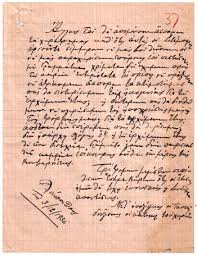
Pallot v Douglas 2017 BCCA 254 dismissed an appeal and held that the appellant did not have standing to apply for partition of a leasehold interest in trust property owned by the Convention of Baptist Churches of British Columbia as the applicant did not have the right to a possessory interest in the lands.
To have standing under the Partition of Property Act a petitioner must have a possessory interest in land.
A possessory interest is:
The present right to control property, including the right to exclude others, by a person who is not necessarily the owner … A present or future right to the exclusive use and possession of property.
Black’s Law Dictionary, 8th ed, sub verbo “possessory interest”.
The possessory interest requirement has been characterized as requiring the petition to have an immediate right to possession of the land:
Although the statutory language in the Ontario Partition Act, R.S.O. 1990, c. P.4, differs, it has been held in Ontario that only persons entitled to immediate possession of an estate in property may make application for partition and sale: Di Michele v. Di Michele, 2014 ONCA 261 at paras. 75 80; Morrison v. Morrison (1917), 39 O.L.R. 163 at 168, 171 72, 34 D.L.R. 677 (Ont. C.A.); and Ferrier v. Civiero (2001), 147 O.A.C. 196 at paras. 6 and 8, 42 R.P.R. (3d) 12 (C.A.)
One of the essential features of a trust is that one or more parties hold title to property and manage it for the benefit of one or more parties who have a right to enjoy the property. The beneficiaries under the trust enjoy the property subject to the terms of the trust.
Professor Waters describes the principle as follows:
The trust is, perhaps, better described by isolating its essential features. The hallmarks, the essential characteristics of the common law trust, are heavily reflective of a particular legal history. The foremost of these is the fiduciary relationship which exists between trustee and beneficiary. One party holds the title to property, and manages it, for the benefit of another who has exclusive enjoyment of the property. As we have seen, it is possible to have a variation on this basic framework, for the trustee may himself be a beneficiary. In that case he will have a share in the enjoyment….
Donovan W.M. Waters, Mark Gillen & Lionel Smith, Waters’ Law of Trusts in Canada, 4th ed. (Toronto: Thomson Reuters, 2012) at 9.
There are both personal and propriety aspects to a beneficiary’s rights under a trust. The proprietary aspect concerns a beneficiary’s rights to pursue trust property as against, for example, a buyer with actual or constructive notice of the trust. With respect to the personal aspect of a beneficiary’s right, Professor Oosterhoff says this:
If we consider first the personal aspect of the beneficiary’s right, it will be apparent that, since the management and control of the trust property is vested in the trustee, the beneficiary only has a personal right against the trustee that the latter perform the trusts that he is bound to perform. The beneficiary can never “go around” the trustee and assert a claim to the trust property directly. On the contrary, the beneficiary’s claim must always be against the trustee….
…only the trustee, and not the beneficiary, has the right and the duty to make claims against third parties who may have interfered with or damaged the trust property….
A.H. Oosterhoff, Robert Chambers & Mitchell McInnes, Oosterhoff on Trusts: Text, Commentary and Materials, 8th ed. (Toronto: Carswell, 2014) at 38.
The interest of the beneficiary under a trust is the right to claim that the trust be performed in accordance with its terms. It is not an immediate right to possession of the trust property.
This position was clearly shown in relation to a beneficiary’s equitable interest in Taylor v. Grange (1879), 13 Ch. D. 223, aff’d (1880), 15 Ch. D. 165 (C.A.). In Taylor, Fry J. held there was no jurisdiction to order partition at the request of a beneficiary with an equitable estate in the trust property, which was held under a trust for management of real property created by a will. Mr. Justice Fry reasoned at 227:
… For if I were to decree partition I should be putting an end to the active trusts which the testator has directed to be carried on during the lives of his daughters. The effect would be to stop the business of working the quarries and to divide the property in a manner inconsistent with the exercise of the powers given to the trustees.
No doubt an equitable owner may obtain a decree for partition if he be entitled to call for a legal estate, which would have entitled him to partition at common Law. But that is not this case, and I should be doing wrong here to make a decree for partition, the result of which, as no conveyances could be at present executed, would be to cause the trusts of the will to be administered separately as to the different persons entitled.




